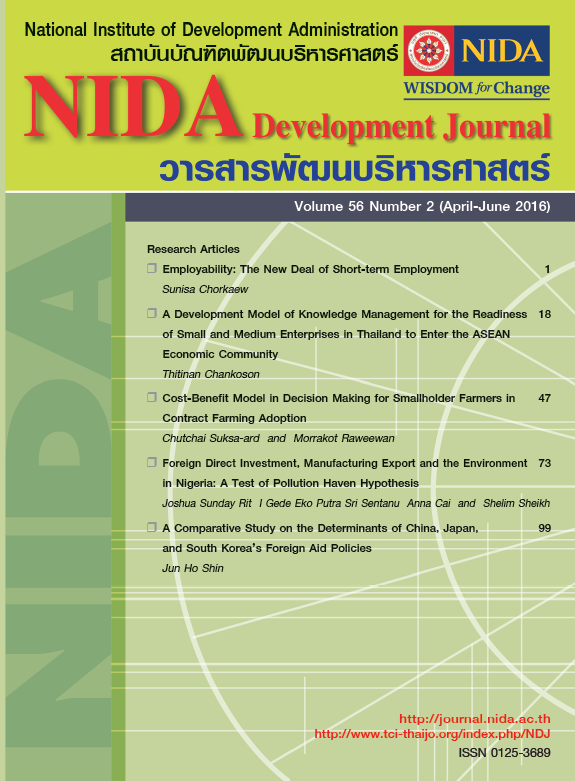Foreign Direct Investment, Manufacturing Export and the Environment in Nigeria: A Test of Pollution Haven Hypothesis
Keywords:
Foreign Direct Investment, Environment, Manufacturing Export, Pollution Haven HypothesisAbstract
One of the ultimate desires of every economy is to achieve sustainable economic growth and development. However, the means through which this objective can be achieved are multidimensional. Emission is closely related to manufacturing output and the performance of a sector is sometimes measured by its exports. This paper investigated the relationship between FDI inflows, manufacturing export and the environment in Nigeria, testing the existence of pollution haven hypothesis (PHH). The data spanned from 1980-2013 sourced from Central Bank of Nigeria statistical Bulletin, and World Development Indicators. Auto regression distributed lag model (ARDL) was used to estimate the short as well as the long run parameters. The result of the findings showed that FDI significantly influenced the variation in CO2 while manufacturing export parameter was found to be positive though insignificant. The granger causality result indicated that a unidirectional causality runs from FDI to C02. The findings support the existence of pollution haven hypothesis while a positive relationship exists between manufacturing exports and emission. The speed of adjustment hovers around 48% in reconciling the short and long run dynamics of the model. The paper therefore recommends among other things that government in bid to pursue economic growth and bridge savings gap should also pursue cleaner technological FDIs i.e. environmental laws should be instituted to ensure that environmental friendly goods are produced. Policies towards the attraction of FDI should be diversified and not only concentrated on oil industries that emit large sum of emissions.





